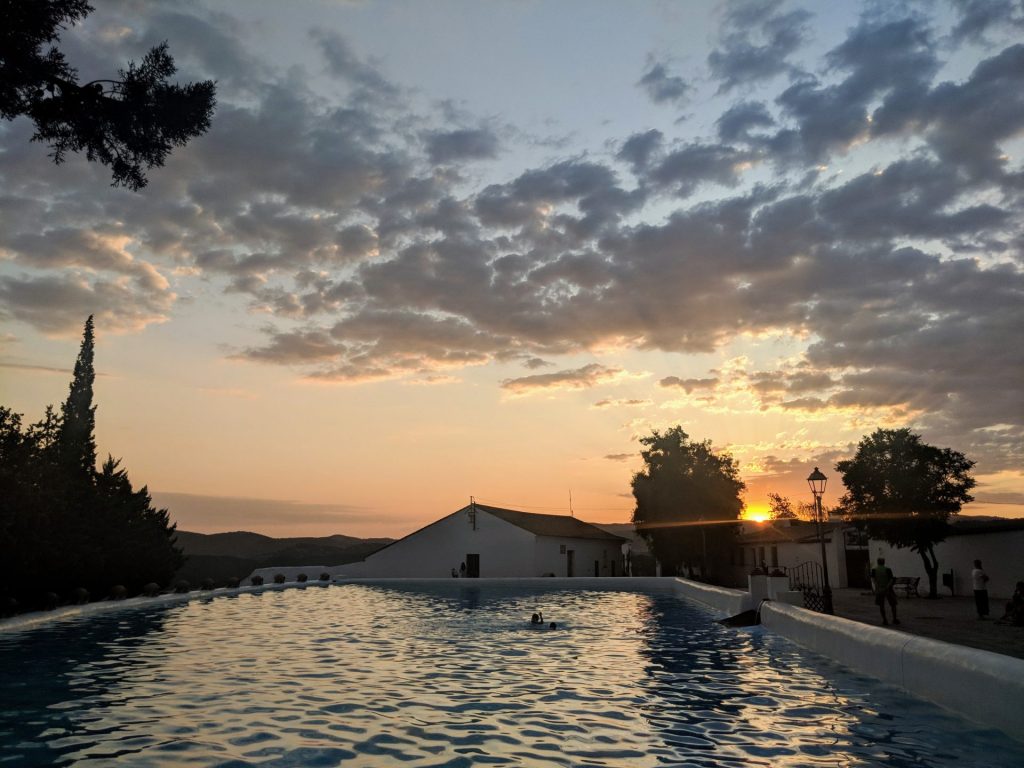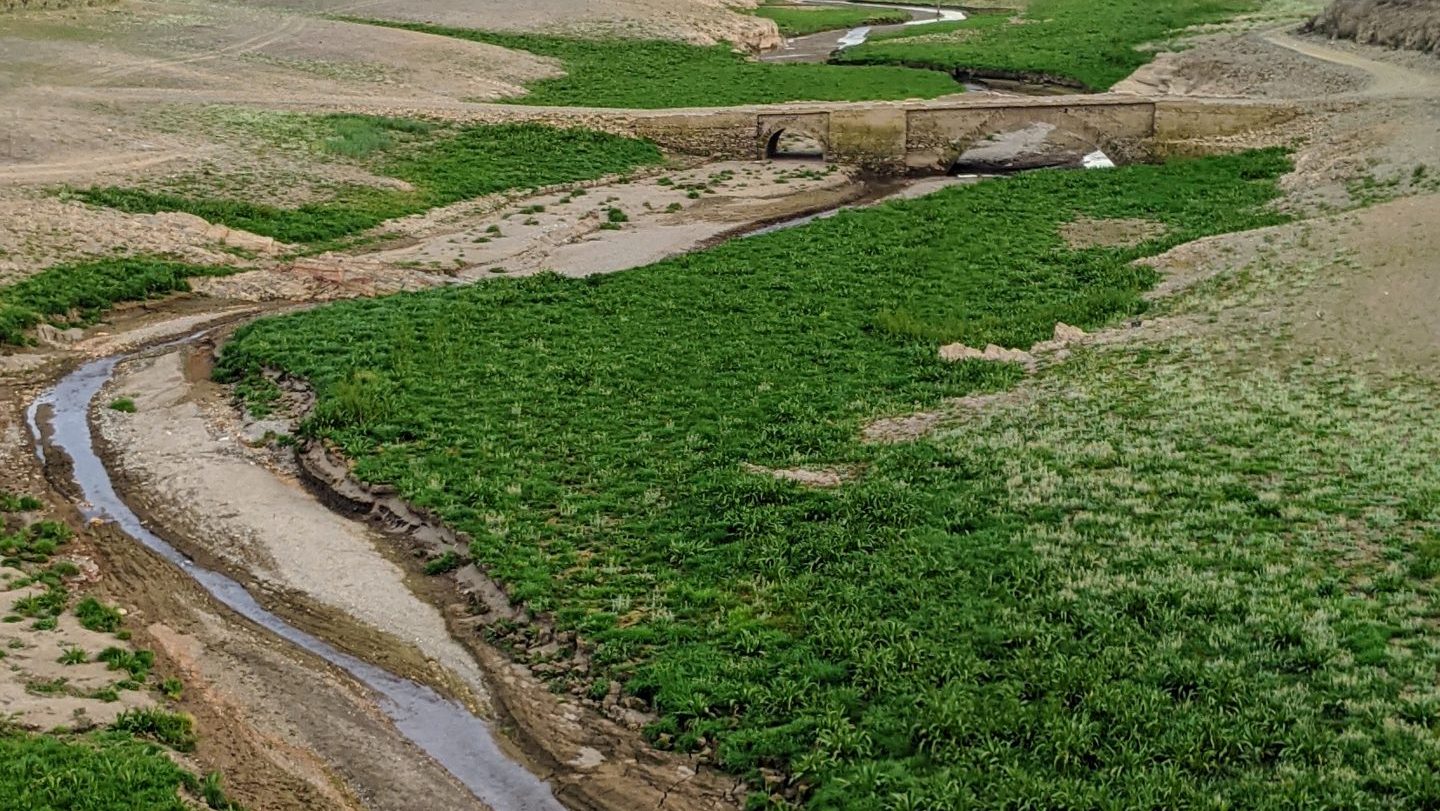Apparently, the average Briton spends four and a half months of their life talking about the weather. Here in Extremadura, the figure is without a doubt much higher than that.
It’s true that when your level of spoken Spanish doesn’t lend itself to discussing philosophy, it’s a reliable option to lead with last night’s storm or tomorrow’s forecast, but even among themselves, extremeños seem to talk of little else.
And why not? In the agricultural economy of the dehesa, the tree-dotted pastureland that covers much of south-west Spain, the weather is everything. And it has been going badly. A prolonged drought has caused the region’s rivers, reservoirs and aquifers to fall to alarming lows.
Each year, we have watched the waterline of the nearby reservoir, the embalse de Aracena, steadily decline. Recently, it has revealed an old road and a bridge last seen in the Franco era before the valley was flooded. Grass covers an expanse where until a couple of summers ago we used to go swimming.
In other parts of Spain, ghost villages and even megalithic standing stones have emerged as the waters have receded.
Water, and access to it, is the stuff of life here. In the campo (countryside) there is no mains supply, so every finca (farm) must have its own source, and a reliable one is a prized asset. Our well lies at the bottom of a steep valley where, so far, streams continue to flow. The water is then pumped to a large tank perched on scaffolding at the top of the hill. Identifying and fixing leaks is a constant preoccupation.
Many villages around here have water-related names or prefixes: Fuente (fountain), Arroyo (stream), and in the mountains to the north, Garganta (gorge).
Most villages and towns have at least one fountain where people collect their own water rather than buy it in bottles at the supermarket, and everyone knows which fuentes have the best-tasting water. Some towns still have a covered area with stone washboards next to the fountain, where women used to do the laundry and catch up on all the news.
The news of late has been that the water shortage is becoming critical. Our district, the comarca of Tentudía, has become the first in Spain to impose water restrictions. Local politicians have made an emergency plea to build a pipeline to channel water from a larger, better-stocked reservoir 80km away. And it’s still only March.

The locals dread to think what will happen once we get to the scorching summer months. “La cosa está mal”, says our friend Pláci. It’s a bad scene.
In nearby Cañaveral de León, the springs that feed the village’s unique lagoon have run dry for the first time in living memory.
The lagoon – originally used to collect water in the winter to irrigate the fields in summer, and more recently as a communal swimming pool during July and August – has lain disused for the last two summers because of Covid. The word is it won’t be refilled again this summer for lack of water.
Some still debate whether global warming is to blame, or whether the region’s notoriously tough climate has thrown up similar challenges in the past. But older people are adamant that there used to be much more rain in the winter months between November and April.

Certainly, the description of Emperor Carlos V’s cold and rain-sodden stay in Extremadura in the winter of 1557, as told in last month’s column, is nothing like present-day winters. Then, it rained solidly for four months. This winter,
temperatures have been the highest on record, regularly hitting 20C, and there has been barely a drop of rain.
In the bars of Fuentes de León they are using their blackboards not for drinks prices, but to chalk up a tally of the scant litres of rainfall recorded since September.
At last, the forecast suggests that rain is coming, but unless it is substantial and prolonged, many farmers fear their fragile businesses will become untenable. Some have already decided to sell their pigs and cattle because they don’t have enough water to give them.
So, when you ask “va a llover?” in Extremadura, it is much more than just small talk. It will trigger a lengthy discussion about when it might rain, if
the rain will be the right kind, and if there will be enough of it.
But people here don’t tend to call it rain (lluvia). It seems more elemental
than that. They talk about agua (water). This spring, everyone is hoping and praying for mucha agua.
Peter Barron is an author for Frommer’s Spain. Follow his blog at adventuresinextremadura.com




